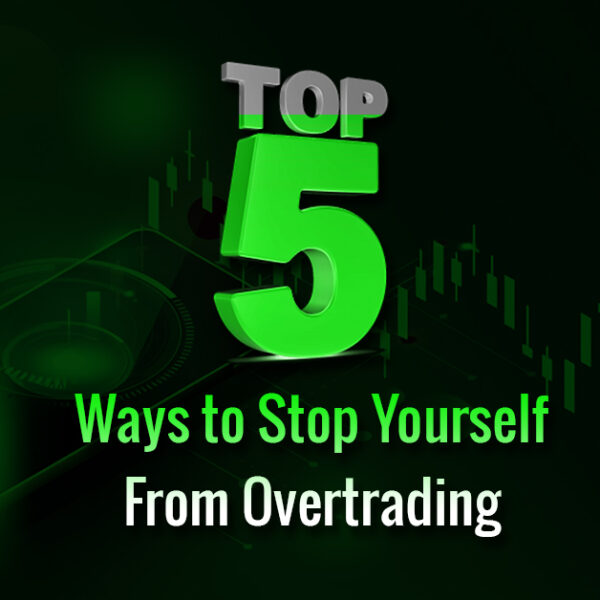Over-trading is among the primary reasons traders fail, and only a few know the reason behind this bad and expensive habit and the possible way to stop it. Unfortunately, it happens to everyone. This article will examine the best ways to stop yourself from overtrading, alongside the risks, pitfalls, etc., associated with overtrading. But before diving fully into details, let’s discuss over-trading and its possible causes.
What is Overtrading?
Overtrading is buying or selling monetary instruments in excess. In other words, it refers to making excessive trades or using a varying amount of money on a single transaction. Although there are no rules against overtrading for individual traders, it can harm your portfolio.
Overtrading is a state that has different thresholds for every trader. For example, for one trader, it could be 60 trades, while for others, it could be even lesser.
What Causes Overtrading?
Overtrading usually arises when a trader or broker fails to stick to their trading strategy and is tempted to quicken their trading rate. Also, a combination of the following factors might result in overtrading:
- Increase in demand or seasonal profits trend.
- Frustration or lack of conviction.
- Edged increase in stock.
- Increasing unexpected costs.
- Fear, anger, or overexcitement.
- Greed.
- Boredom.
All these, therefore, unconsciously make a trader make illogical trading decisions by balancing emotional stress with a high trade rate. To avoid these, here are 5 tips that can help you stop overtrading.
Top 5 Ways to Avoid Overtrading
1. Treat Trading as A Long-Term Business
The investment world is changing: new stockholders are being trained to trade their accounts in quick bursts for quick returns. However, most times, these techniques fail. A more perceptible goal is getting a trading structure you can apply daily, depending on your account size.
Also, don’t be anxious over one loss or a losing streak. Instead, pay attention to your performance in the coming months and years. By taking a longer-term style of trading, you will ride the waves. And once you accept that trading is a long-term effort, you are in a much better position to avoid overtrading.
2. Diversify Your Portfolio
Like every other investment, always have a diverse portfolio – a mixture of various financial securities that hedge your trades. Failing to diversify your portfolio translates to putting all your eggs in one basket. To avoid this, you must safeguard your portfolio by spreading it out.
A well-diversified portfolio across several asset classes, stocks, and currency pairs yields maximum returns while minimizing risk and balancing your investment.
3. Avoid Emotional Trading
The essential tip of “How to Stop Overtrading” is to avoid emotional trading. Many of us have an unfriendly bond with the stock, forex, crypto, synthetic, etc., market. We get lightheaded, nervous, and impulsive when things don’t go as planned. You must emotionally detach yourself from the market to comport and transact based on realities rather than impulses.
Rather than trading with your emotions, use a well-defined plan and keep your emotions in check during your decision-making process. This simple trading psychology principle will help you maintain control, discipline, and structure and enjoy your trading skills more.
4. Risk What You Can Afford to Lose
Of course, risking what you can afford to lose is easier said than done. But guarding your trading investment involves drawing aback and examining the importance of following that fundamental rule of thumb.
Successful investment is not about taking complementary risks. The top investors know how to censor their losses and allow their incomes to run. But on the other hand, overtrading or using your portfolio excessively in a volatile market leads to more errors and restless nights.
As a margin trader, you should centralize your trading strategy on position sizing, identifying the risk you are willing to take per trade. In addition, you should also consider where and how you are trading, the market volatility, and, most importantly, your risk tolerance. Position sizing and keeping proper cash flow will help you reduce the risk of uncertainty and avoid terrible losses.
5. Always Use a Stop Loss
The importance of setting SL can never be overemphasized. However, you should set these limits based on your trading results for at least three months, not on fears or hopes. For instance, if the best trading return you made for the past three months is $6k and you realize $9k on a particular day, you should close up for that day.
If you can set a stop loss to limit your losses and a target income for the day, you will gather a nice war chest over time. Most importantly, understand that setting an SL doesn’t mean you are restricting yourself but about knowing that if you continue trading, you will likely give back some of or a good portion of your profits to the market.
Final Thoughts On The Ways To Stop Yourself From Overtrading
Overtrading can be one of the many things restricting you from achieving substantial trading success. It’s easy to assume that the more you trade, the more you gain. However, this is not the case. Instead, trading is a game of persistence that requires sincerity and fighting against impulsive decisions that may want to dictate the rules of the market for you.
Therefore, it is okay to miss out on a trading opportunity. The opportunities in the market are boundless – more and more are on the way if you persist. Resorting to overtrading may give you profits in the short term, but trust me; it would be disastrous with time.

